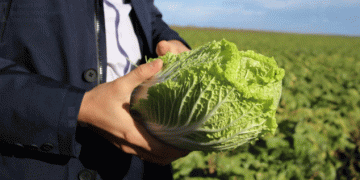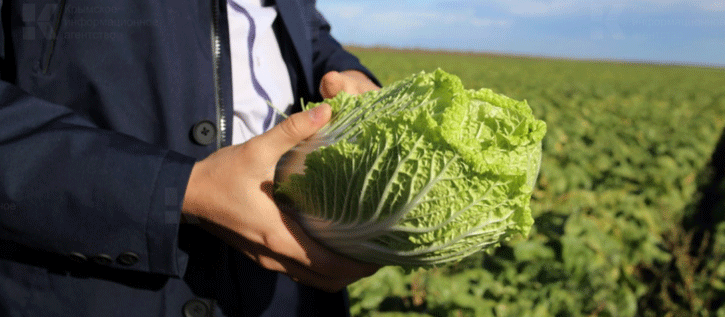In a notable development for regional agricultural trade, Crimea has established a significant export corridor to Belarus, with fresh vegetables proving to be highly sought-after commodities. According to specialists from the Azov-Black Sea branch of the Central Organic Certification Center of the Agro-Industrial Complex (APK), since the beginning of the year, exports have included over 250 tons of cabbage, approximately 45.8 tons of greens, and around 32 tons of pumpkin.
The success of these exports is not accidental. Andrey Ryumshin, Director of the Azov-Black Sea branch, emphasized that all products undergo rigorous laboratory testing to meet the strict requirements of importing countries. “The vegetables from Crimea are in demand both in the domestic and international markets,” Ryumshin stated. The certification process includes comprehensive analyses for pesticide residues, toxic elements, radionuclides, and GMOs, providing a crucial guarantee of safety and quality for the end consumer.
This commitment to quality control is reflected in the institution’s soaring workload. The laboratory reported testing more than 35,000 tons of vegetable produce this year. This figure represents a 140% increase compared to the same period last year, which saw 14,600 tons tested. This dramatic rise underscores a strategic focus on leveraging certification as a key to unlocking and sustaining international market access.
Connecting to Broader Trends
This trend aligns with global consumer and regulatory shifts. A 2024 report by the Food and Agriculture Organization (FAO) highlights that non-tariff measures, particularly Sanitary and Phytosanitary (SPS) standards, are now the most critical factors for agricultural market access. Furthermore, data from ITC (International Trade Centre) indicates that consumer demand for certified, safe, and traceable food products continues to grow annually by 8-10% in Eastern European markets. By investing in robust laboratory verification, Crimean producers are directly responding to these market drivers.
The export figures to Belarus tell a story beyond mere tonnage. They signal Crimea’s growing integration into regional food supply chains, a process driven by a demonstrable commitment to international safety standards. For farmers, agronomists, and farm owners everywhere, this case serves as a powerful reminder that in today’s globalized market, consistent quality and verifiable safety are not just value-added features—they are the fundamental prerequisites for export success. The 140% increase in product testing is a clear indicator that building a trusted agricultural brand is paramount.































